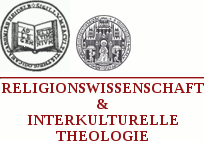Theosophy and English language education for women in colonial Ceylon. A study on gender issues in the context of religion and nation in a global history perspective.
The Theosophical Society played an important role in the religious history of Ceylon at the end of the 19th century and in the first half of the 20th century. So far, only its support for Singhalese reform Buddhism has been addressed in scholarly research. Its influence on the Tamil-saivite Hindu reform movement was not investigated. Nor has the research so far appreciated the fact that the Theosophical Society, as an important networking instance, promoted personal contacts between the colonial elites across religious and linguistic boundaries. The theosophical influence on Ceylonese society in all its aspects can be studied in the English language schools for girls, which were run by the religious reform movements and which were led without exception by prominent American and European theosophists. The concentration on women's education also makes it possible to take into account more recent discussions in the gender studies that are oriented towards global history. These discussions should be made fruitful for the concept of a global religious history. In order to adequately contextualize the role of theosophically mediated women's education, a more precise knowledge of the teachings and activities of P. Ramanathan in the context of the contemporary Tamil Saivism and Tamil nationalism in Ceylon is indispensable. However, the necessary research has been missing. Therefore, as a second focus of the project, P. Ramanathan's position within Ceylon's religious history will be examined more closely.
Researcher: Jessica Albrecht
Funding: German
Research Foundation (DFG)
Project duration: 2020-2023
Project duration: 2020-2023



